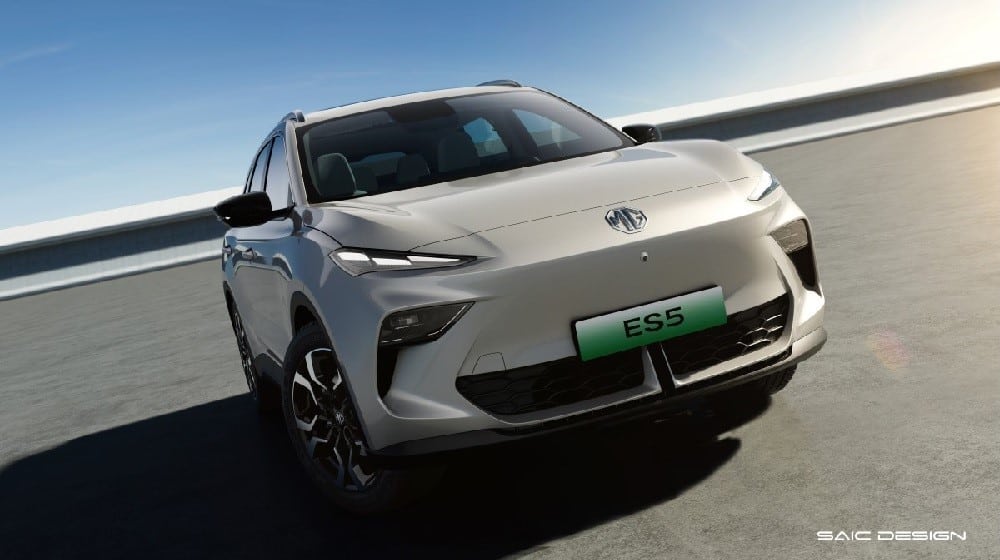In a groundbreaking move aimed at the promotion of Electric Vehicles (EVs), REC Group of Pakistan and the leading Chinese company, TGOOD, have inked a memorandum of understanding (MoU). This partnership heralds a new era in Pakistan’s transportation sector, and its significance cannot be overstated.
REC Group of Pakistan and TGOOD – A Memorable Partnership
REC Group, a prominent name in the Pakistani business landscape, and TGOOD, a leader in the global arena, have come together to create a strategic partnership. This partnership isn’t just about business; it’s about sustainability and green development.
The Role of Chairman Senate, Sadiq Sanjrani
The signing ceremony for this momentous agreement was graced by the presence of Chairman Senate, Sadiq Sanjrani, who led a Pakistani delegation. In his speech at the ceremony, Chairman Senate emphasized that this collaboration aligns perfectly with China’s sustainable green development initiatives, as outlined during the third Belt and Road Initiative Forum.
Aligning with China’s Belt and Road Initiative
China’s Belt and Road Initiative has become a symbol of progress and international cooperation. By entering into this partnership, REC Group and TGOOD have demonstrated their commitment to these ideals. This alignment with a global vision will pave the way for a greener and more sustainable Pakistan.
Expanding the Horizons – Areas of Collaboration
The REC-TGOOD partnership is not limited to the manufacturing of electric vehicles. It extends to various other key areas, including hydrogen filling station infrastructure, EV production, hydrogen vehicle technology, battery production and recycling solutions, and the development of EV charging infrastructure. This broad spectrum of collaboration ensures a holistic approach to the advancement of electric mobility in Pakistan.
READ MORE: Eight Indian Navy Personnel Sentenced to Death for Espionage in Qatar: A Shocking Revelation
Tackling Air Pollution in Pakistan
The transport sector in Pakistan is a significant contributor to air pollution. Shifting to alternative fuels is crucial for reducing emissions. However, one of the primary obstacles has been the lack of charging infrastructure across the country. This partnership aims to address this challenge head-on.
The Challenge of Charging Infrastructure
The limited presence of electric vehicles in Pakistan has deterred investors from focusing on charging infrastructure. REC Group and TGOOD are poised to change this by investing in the development of EV components and charging stations. This will create a more conducive environment for the adoption of electric vehicles in Pakistan.
TGOOD’s Vision for Hydrogen Fueling in Pakistan
TGOOD doesn’t stop at electric vehicles. Their vision includes leading the development of hydrogen fueling infrastructure in Pakistan. Hydrogen vehicles represent an innovative and sustainable solution to transportation needs, and this partnership seeks to make them accessible to the Pakistani market.
Exploring Regional Export Opportunities
This collaboration is not just about meeting domestic demand. REC and TGOOD have their sights set on regional export opportunities. Products manufactured in Pakistan under this partnership may find their way to neighboring countries, further enhancing the global appeal of Pakistani technology.
Overcoming Obstacles through Strategic Investments
The journey to widespread adoption of electric vehicles is not without its challenges. However, REC and TGOOD are committed to overcoming these obstacles through strategic investments, export-oriented growth, and the establishment of recharging stations across Pakistan. This partnership will pave the way for a greener, more sustainable, and technologically advanced Pakistan.
Conclusion
The partnership between REC Group of Pakistan and TGOOD marks a significant step toward a sustainable and eco-friendly transportation landscape in Pakistan. With ambitious plans for electric and hydrogen vehicles, charging infrastructure, and regional export, this collaboration holds the promise of a brighter, greener future for the country.




